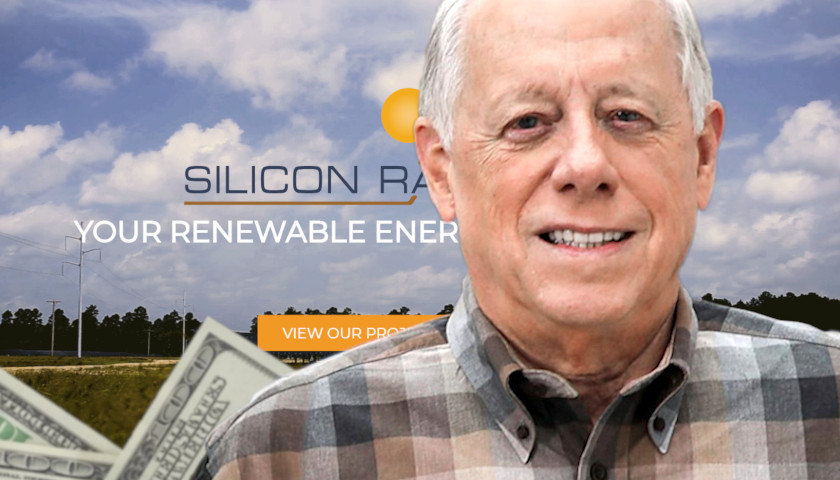An expert says solar power isn’t as effective an energy saver as people in government might lead Tennesseans and others across the country to believe.
That expert, Nick Loris, of the Heritage Foundation, a Washington, D.C.-based think tank, also said solar is more expensive.
He also said it’s only hobbled along as far as it has because of government subsidies and tax incentives.
Loris said this on Thursday, only a few days after a company with direct ties to Tennessee Democratic gubernatorial candidate Phil Bredesen reportedly launched a new solar initiative in northeast Tennessee. Bredesen did this through his company Silicon Ranch.
As reported, Bredesen personally benefitted from solar energy policies he enacted while Tennessee’s governor.
Electricity generation from solar power, Loris said, is only 1.3 percent of all electricity generation — even with government subsidies to give it a boost.
“It is still more uneconomical than other energy sources,” Loris told The Tennessee Star.
“Not only do you have to pay to back it up when the sun isn’t shining, but a lot of times you have to build new transmission lines and to get the solar from the places that it’s being built to where you need the energy. In that regard, even though the costs of panels have come down quite significantly, it’s still not the most cost effective energy source by a pretty substantial amount.”
Loris cited Solyndra as an example of a solar manufacturing company that took $535 million from the federal government, only to go bankrupt shortly thereafter.
The government, Loris went on to say, “props up companies that couldn’t compete in a marketplace otherwise.”
That’s corporate welfare, Loris said.
So why do so many politicians jump on the solar power bandwagon?
“I think because it looks good politically. People market it as a jobs program. I think the other big part of it is if you can secure the subsidies and those subsidies can benefit your district that makes you look good as well,” Loris said.
“If you look at all the federal investment tax credits and state tax credits and some of the cash rebates and all sorts of subsidies that are out there it helps when politicians and lobbyists can bring this all together to the forefront. They can make it sound good even though, from an economic standpoint, you end up paying more as a ratepayer for the price of your electricity and also as a taxpayer to subsidize these programs.”
According to The Johnson City Press, officials with that city’s utility, BrightRidge, and the Tennessee Valley Authority broke ground on what they call the first solar power-producing plant in that part of the state.
“The 40-acre solar farm, which will be owned and operated by Silicon Ranch, is also the first public/private partnership of its type in the region,” according to the paper.
Reportedly, the 5-magawatt solar array project will power 500 homes through a sustainable and renewable energy source. The project will also generate 8 million kilowatt hours of electricity annually.
“Silicon Ranch is covering all costs to build the solar farm with the understanding that TVA and BrightRidge will buy power from the facility,” according to the paper.
As The Star reported this week, Bredesen rakes in millions of dollars off deals involving Silicon Ranch Corp. by pitching solar projects that appear on paper to offer a cheaper alternative to coal.
But under closer examination, the Silicon Ranch numbers are skewed by federal tax credits that subsidize its solar-energy industry.
– – –
Chris Butler is an investigative journalist at The Tennessee Star. Follow Chris on Facebook. Email tips to [email protected].





